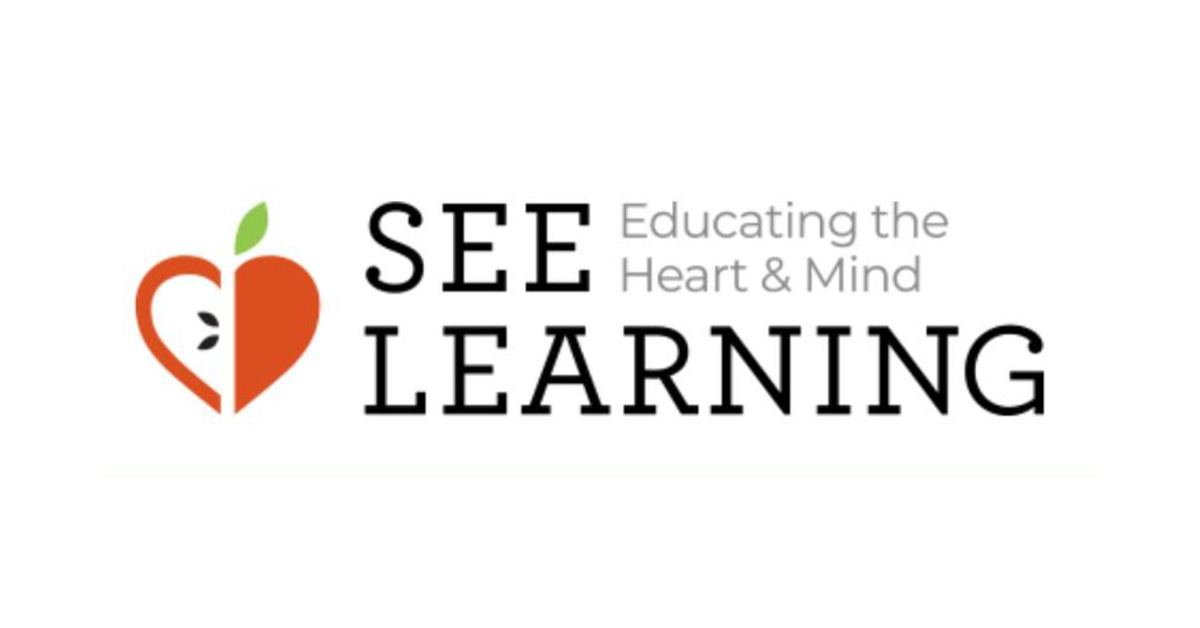
2021.11.10

SEE Learning學習架構
SEE Learning學習架構是一種創新之舉,建立在 「社會情緒學習 (SEL)」以及其他導入「全人教育」之教育施的基礎上。社會情緒學習 (SEL)是一種涉及到學生和成人獲得一些的知識、態度和技能的過程,能幫助我們理解和管理自的情緒、感受並同理他人、建立和實現正向的目標、發展和保持正向的關係、以及做出負責任的決定,並有效其應用所學,以便我們能夠有效且合於倫理的方式處理我們自己、人際關係和我們的工作。
The SEE Learning framework builds on the innovative work done in Social and Emotional Learning(SEL) and other educational initiatives that seek to introduce holistic education into schools. Social and emotional learning, or SEL, involves the processes through which students and adults acquire and effectively apply the knowledge, attitudes, and skills necessary to understand and manage their emotions,feel and show empathy for others, establish and achieve positive goals, develop and maintain positive relationships, and make responsible decisions, so that we can handle ourselves, our relationships, and our work effectively and ethically.
SEL能力被視為「主導技能(mastery skills)」,幾乎涵蓋人類功能所有面向的基礎。此外,SEL提供教育工作者、學生、家庭和社區相關的策略和做法,乃是為「生活的考驗,而不是考試的生活」做更好的準備。9 SEL能力包括正向的健康實踐、公民參與,以及校內學外業和社會成就等基礎能力。SEL有時被稱為「失去的一塊」,因為它代表教育的一部分,是學校教育成功密不可分的一部分,但直到最近才得到明確的闡述和重視。SEL強調主動的學習方法,透過這些技能的練習,促進正向的態度、行為和思考過程,如果有機會,可以在課程領域和情境脈絡中推廣。好消息是,可以透過有意識地培養,以及關懷學習環境和體驗等來學習SEL技能。
SEL competencies are viewed as “mastery skills” underlying virtually all aspects of human functioning.Moreover, SEL offers educators, students, families, and communities relevant strategies and practices to better prepare for “the tests of life, not a life of tests.”9 SEL competencies comprise the foundational skills for positive health practices, engaged citizenship, and academic and social success in school and beyond.SEL is sometimes called “the missing piece,” because it represents a part of education that is inextricably linked to school success that may not have been explicitly stated or given much attention until recently. SEL emphasizes active learning approaches in which skills can be generalized across curriculum areas and contexts when opportunities are provided to practice the skills that foster positive attitudes, behaviors, and thinking processes. The good news is that SEL skills can be learned through intentionally providing nurturing and caring learning environments and experiences.
SEE Learning 旨在作為一個架構,可以在不同國家和文化之間使用,也可以在宗教或非宗教學校中使用。它的倫理道德學方法並不基於任何特定的宗教,文化或倫理學傳統,而是基於“世俗倫理學”的方法,㇐種非宗派主義的普遍倫理道德學方法它可以被任何有宗教信仰或沒有宗教信仰的人接受。正如SEE Learning 旨在促進學生提高“情感素養”㇐樣,它也試圖促“倫理道德素養”。這不是被理解為外部施加的特定道德準則的堅持,而是學生技能和理解力的培養,這種培養是可以促進有益於自己和他人福祉的行為。
SEE Learning is intended to serve as a framework that can be used across countries and cultures, as well as in schools that may be religious or nonreligious.Its approach to ethics is not based on any particular religious, cultural, or ethical tradition, but rather on the approach of “secular ethics”—a non-sectarian approach to universal ethics that can be acceptable to people of any or no religious faith. Just as SEE Learning aims to facilitate greater emotional literacy” in students, it also seeks to promote “ethical literacy.” This is understood not as adherence to specific externally imposed ethical mandates, but as the cultivation by students of skills and understanding that can promote behaviors that are conducive to their own and others’well-being.
許多先驅者已經考慮過這種道德操守方法的可能性和前景,以及它可以為我們的社會和世界做出什麼貢獻,這些先驅者對這㇐個架構產生了重大影響。其中最重要的是達賴喇嘛,他呼籲採取㇐種整體的教育方法,與傳統的學術學科㇐起,培養㇐種仁慈和道德的心態,它的基礎是人類的基本價值觀,可以通過常識,共同經驗和科學來辨別。達賴喇嘛關於世俗倫理及其在教育中實施的著作和思想源於與世界各地傑出的科學家,教育家和宗教領袖的四十多年對話,最近幾年來也得到了來自各種不同學科的許多思想家的補充。此外,達賴喇嘛與埃默里大學(Emory University)的關係可以追溯到20 年前。這種關係致力於促跨文化和跨學科的合作,並導致了像慈悲科學等領域的開拓性研究。它總體的首要目的㇐直都是想要支持他和這所大學對心靈教育願景的實現。
A number of pioneers who have thought through the possibility and promise of such an approach to ethics, and what it can contribute to our society and our world, have significantly influenced this framework. Foremost among these is the Dalai Lama, who has called for a holistic approach to education that cultivates, alongside traditional academic subjects, a benevolent and ethical mindset grounded in the basic human values that can be discerned through common sense, common experience, and science. The Dalai Lama’s writings and thinking on secular ethics and its implementation in education stem from more than four decades of conversations with prominent scientists, educators, and leaders of the world’s religions, and they have been complemented by a range of thinkers across a variety of disciplines in recent years. Moreover, the Dalai Lama has had a relationship with Emory University that extends back over twenty years. This relationship is dedicated to fostering cross-cultural and interdisciplinary collaboration, and has led to pioneering research in areas such as the science of compassion. Its overarching purpose has been to support the realization of both his and the university’s vision of an education of heart and mind.
隨著全世界的研究都呈現出這種倫理道德觀與繁榮之間的關聯,培養基本人類價值觀能夠利益自他的這個想法正快速地獲得肯定及普及。
The idea that cultivating basic human values can benefit oneself and others is rapidly gaining ground as research throughout the world demonstrates the connection between ethical values and flourishing.
分享到 更多文章